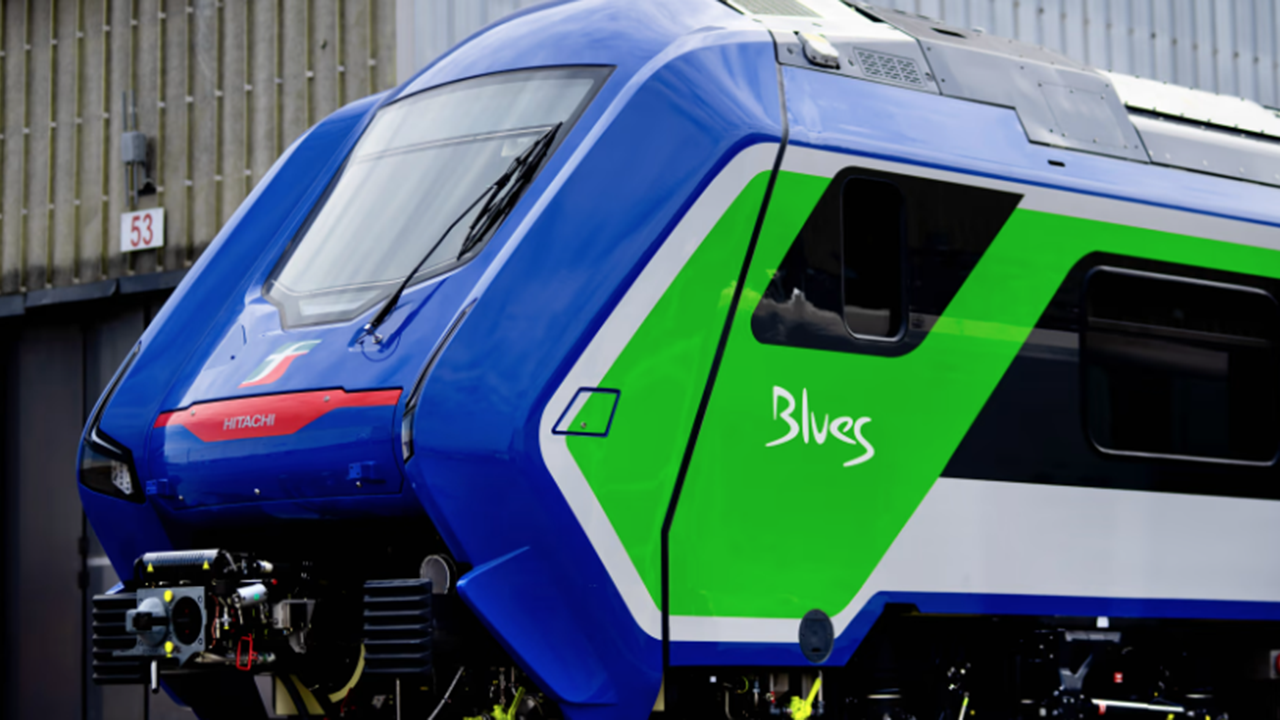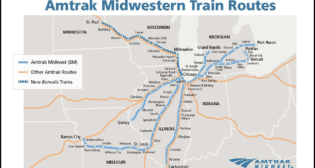
Building an ‘Ethical’ Rail Vehicle
Written by William C. Vantuono, Editor-in-Chief
The SPD was undertaken on Hitachi Rail's Masaccio battery hybrid train project. Hitachi Rail photo
Most everyone in the rail transit industry knows that vehicles must be certified prior to entering revenue service—safety, functionality, quality, performance, etc. Hitachi Rail has added “social certification” to the mix with an SPD (Social Product Declaration).
Hitachi Rail claims it is “the first manufacturer in the world to be able to track not just the environmental impacts of its products, but also the social impacts via an SPD. Social certification measures a train’s impact from manufacturing and supply chain to end-of-life management and recycling.” The company has completed an SPD, which tracks “ethical life cycle,” for its Masaccio battery hybrid trainset.
Hitachi Rail developed the SPD application with EDP International AB. It records all work done by suppliers “across the entire value chain, evaluating their social performance and adherence to modern, ethical working practices, including employee safety, fair salaries, gender equality, labor laws and rule of law,” the company said. “This evaluation process spans the entire 30- to 40-year lifecycle of a train, from design, materials sourcing and manufacturing to decommissioning and recycling. The system enables Hitachi Rail to give operators and passengers confidence that the manufacturer and its network of suppliers followed ethical and socially responsible working practices.”
Hitachi Rail notes it designed its SPD in accordance with United Nations Sustainable Development Goals (SDGs). With more than 20,000 companies in its supply chain, Hitachi Rail said it “will create an automated platform to manage the information gathering and certification for future fleets.” The SPD was third-party verified by independent SPD verifier Claudia A. Peña, and published in the International EPD System, owned by EPD International AB.
“For many years, Hitachi Rail has calculated the environmental impact of its trains, including the energy they consume, the emissions they produce and the ability to recycle materials at the end of their life,” the company says. “This has allowed the company to drive up sustainability standards, optimizing efficiency, reducing emissions to zero and achieving 95% or higher recyclability for its modern electric trains. Through this commitment to reporting, the business was also recently able to achieve the rigorous PAS 2080 carbon reduction standard for the design, manufacture and operation of Britain’s HS2 fleet. PAS 2080 is globally recognized as one of the leading environmental standards in infrastructure design and manufacturing, and Hitachi Rail’s accreditation is the first time it has successfully been applied to rail.”
Hitachi Rail’s SPD was designed following testing of its Masaccio fleet, which is currently being rolled out across Italy. “This equipment’s ability to draw on battery, electric and diesel power has helped it to cut carbon emissions by 50% compared to existing trains on the line,” the company notes. “Hitachi Rail is now ready to launch its EuroMasaccio, an evolution of the product that will serve the central European market” beginning in 2027.
“We are proud to launch this world-first certification for trains, enabling us to track their social impact from manufacturing to decommissioning and recycling decades later,” said Luca D’Aquila, COO Hitachi Rail Group and CEO Hitachi Rail Italy. “This system enables us to assess whether our supply chain follows practices including employee safety, fair salaries and gender equality, giving confidence to our customers and their passengers in the social as well as environmental credentials of our products. By achieving certification for our projects, we are striving to contribute to a more sustainable and socially responsible industry, and hope other companies follow suit.”
“EPD International was the original creator of the Environmental Product Declaration, and today, 25 years later, we are proud to be part of the creation of the first ever SPD,” said PCR Manager Gustav Sandin, EDP International. “The ability to publish a third-party verified declaration of the environmental and social impact of a product life cycle gives a more complete picture of how a product affects society. We hope to see more organizations publish SPDs of their products and services.”



